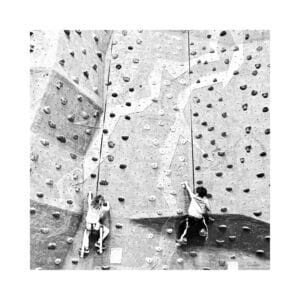I recently asked my older kids (7 and 10) what comes to mind when they think about play.
Their immediate answer was that play is about being silly, laughing, pillow fighting, dancing, and playing games.
For them, it is about enjoyment and having fun.
It was fascinating to discover that like them, I also intuitively thought about play as fun.
Do you?
Apparently, it is just a piece of the puzzle.
It took play researcher and psychiatrist, Dr. Stuart Brown, years to recognize that he didn’t have a full understanding of play.
As he shares in his Ted Talk called Play is more than just fun, many misunderstand play.
This misunderstanding may result from misconceptions, lack of knowledge, or narrowed perspectives.
Let’s add pieces to the puzzle, and start with the common misconception that play is just about fun.
When we play and have fun, there are many things that happen under the surface. We also communicate using various signals, express and regulate emotions, connect, develop trust, and so many other skills. Or in short, when we play we learn.
However, play is not always experienced as fun.
Fun is only one characteristic of play. Additional key characteristics include being challenged, pursuing it voluntarily, uncertainty, flexibility, and non-productivity. Or in short, we choose to explore the possible.
While the idea that play is just about fun is the most common misconception, there are additional misconceptions and knowledge gaps we want to be aware of:
- Play is a waste of (learning) time. We now know that play enhances learning. While this learning might be different than what we want our kids to learn (reading, math…), we can’t say that learning doesn’t happen. The benefits of play-based learning include: taking risks, learning from trial and error, solving problems, developing social, emotional and communication skills, creativity, perspective taking, and so much more.
- Play is something we do in our spare time. We need to start thinking about play as we think about sleep, food, or water. Play is regulated on a biological level. The human body has biological mechanisms in place to maintain certain things, including play, in balance (homeostasis). It means that in the same way we seek food when we feel hungry, we seek play when we feel play deprived.
- Play has to have a purpose. Play is beneficial also when it doesn’t have a specific purpose. There is enormous value in the process itself because all the learning happens throughout it. It means that not each play activity the kids or we initiate or design, should have a purpose. And this is liberating!
- Play is just for kids. Grownups need play too.
As the research on play and the experience of using play as a teaching method are being accumulated, it definitely challenges the understanding we have about play.
And this is a great thing!
Because we can’t cultivate playfulness and enjoy the rich benefits of play if we misunderstand it.
It’s time to take play seriously 🙂
Becomers’ weekly challenge – explore misconceptions
Familiarizing ourselves with the misconceptions we hold can help us understand our feelings, actions, and choices, when we encounter or engage in play.
1. Reflect
- What misconceptions do you hold about play?
- How do they impact your feelings, actions, or choices?
For example, suppose we believe that play is just about having fun, or that play is a waste of learning time. In that case, we will likely feel triggered when we see our kids playing instead of studying or doing something we consider more enriching and purposeful.
Another example is if we believe that play is something we do in our spare time, we may tell our kids to first finish their school responsibilities and then play. However, when we think about play as a biological necessity, it can help us design the day differently and adjust our expectations.
2. Play
During the weekend, put yourself in a scenario where you feel uncomfortable. Maybe ask your kids to play a game that you don’t like, or do something that you are not good at. What did you notice and learn while engaging in that play? As mentioned, fun doesn’t always have to be present during play.
Although it feels uncomfortable and it’s not fun to explore misconceptions, it’s part of the game 🙂
I hope you will approach this exploration with serious playfulness,
Liz
Become the change 🙌
Join the Becomers community around the world to receive new editions of the newsletter, sent to you every Thursday. Sign up here 👉 JOIN


